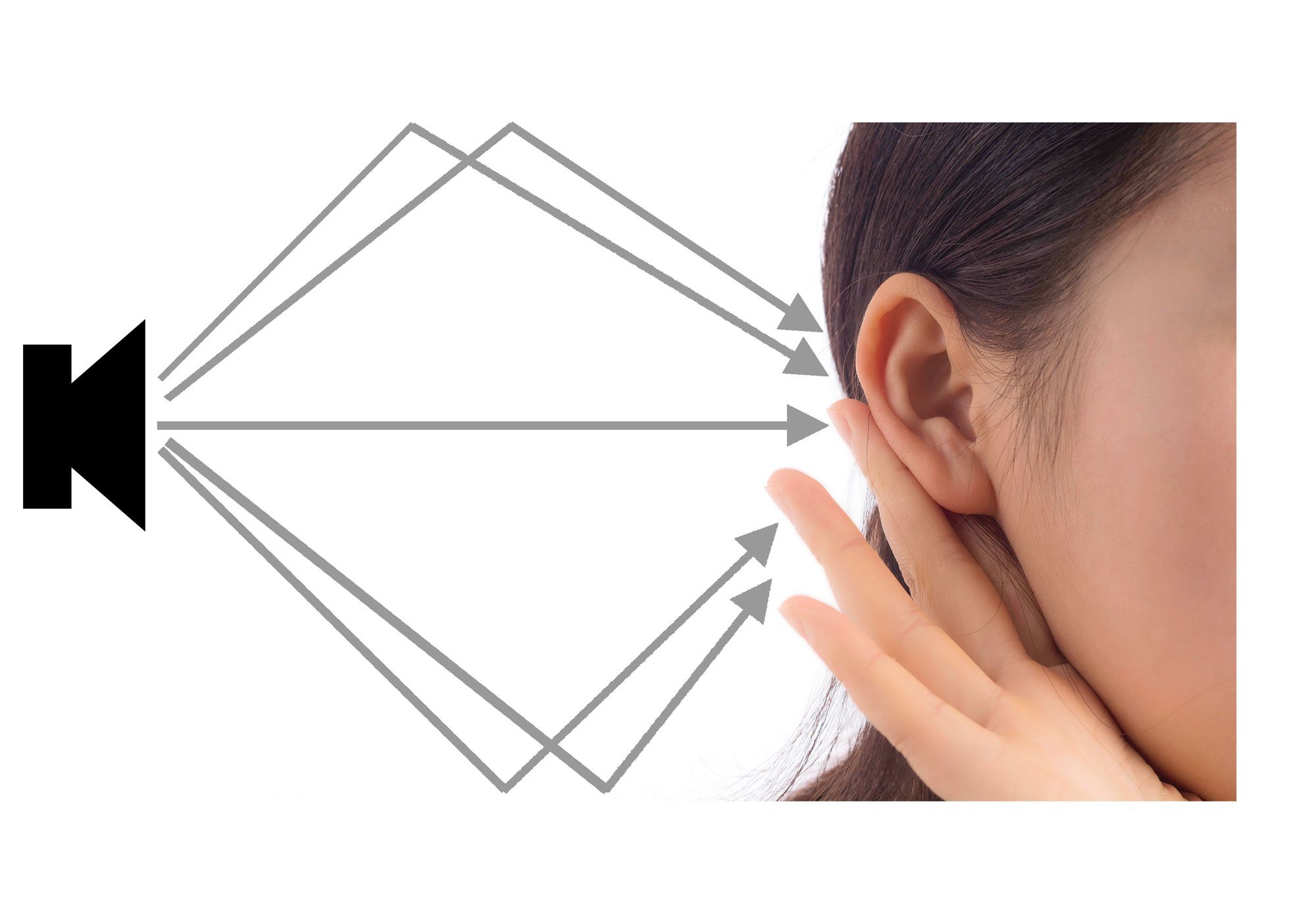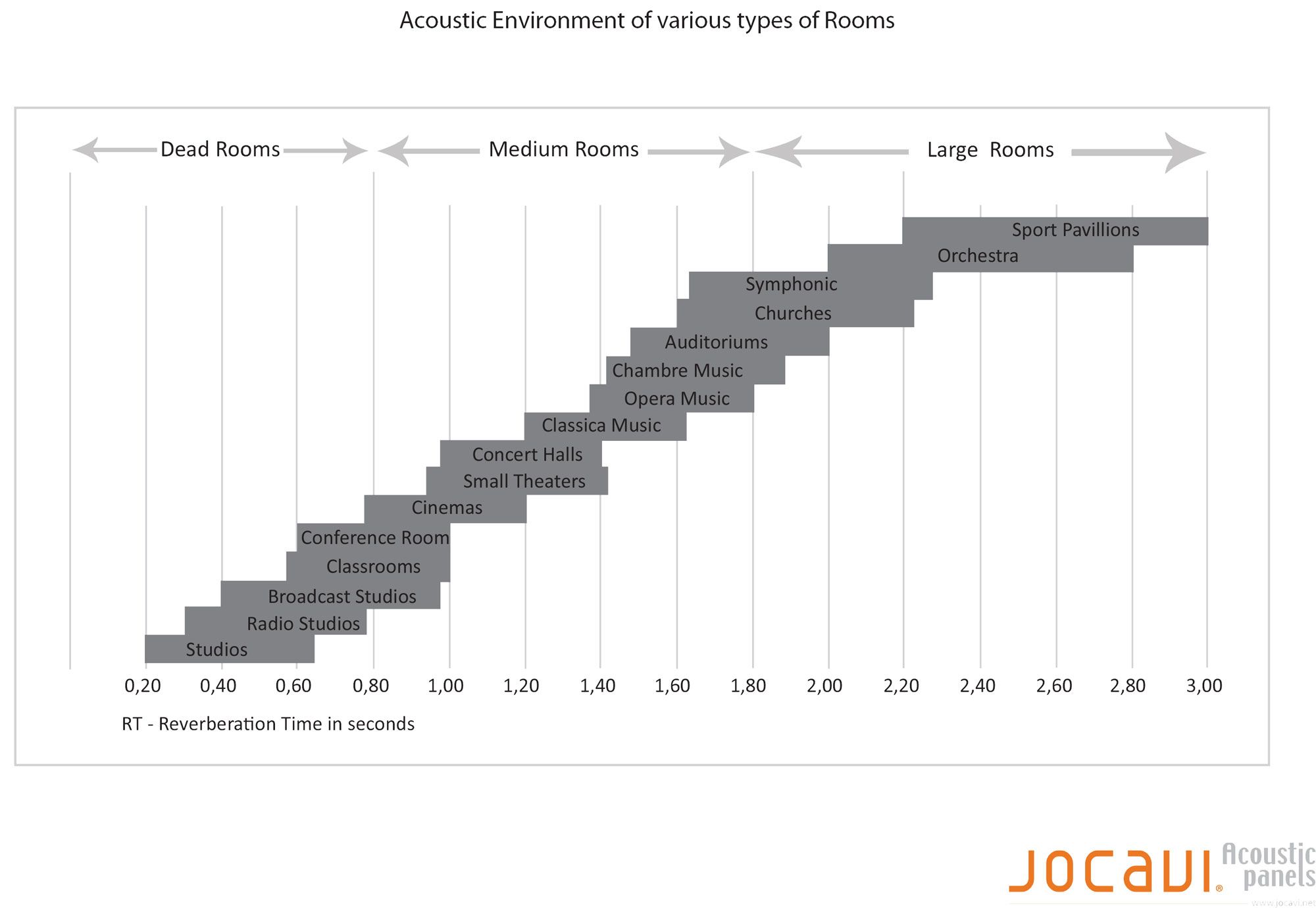Sound is made by pressure waves. Those waves spread from their starting point and bounce around walls, ceilings, floors and every surface, losing energy over time.
We call that reverberation, which can be translated as the resonance or reflections of sound after the original is produced.
 Sound waves bouncing and producing reverberation
Sound waves bouncing and producing reverberation
So, depending on the noise and the room, sound decays at different speeds, depending on frequency and design of the space. This means that longer reverberation times will become unintelligible sounds, depending on the space and types of sound.
The length of this decay is called Reverberation Time.
So, to measure the time that sound takes to be inaudible, we use a method called RT60. The time it takes to reduce sound pressure level by 60dB. For example, if the sound in the room takes 5 seconds to decay from 100dB to 40dB, the RT60 is 5 seconds. This measurement using 60dB is not arbitrary. It is the typical range of dynamic levels for orchestral music.
So to measure RT60 we use a sound level meter with acoustics measurements to reach a number before treatment. At JOCAVI, our acoustic simulator, JAS, can make an average estimate of your RT time, given the size of the room.
The measurement of RT60 is used to find a value for acoustic treatment. Depending on the intended use for the room or space, it should have different optimal reverberation times. If a room has too many absorbent materials it is described as acoustically ‘dead’ and, if the opposite occurs, it is acoustically ‘live’.
Of course there is an optimal range for reverberation times in different spaces and below you can see a graph made by JOCAVI to better understand the process. If you want to know more about the calculations of this process, please click here.

Note that this measurement is an average. Also, it implies the decay is exponentially, which sometimes is not the case, depending on the disposition of reflective, dispersive or absorbing surfaces. More about the principles of reverberation here.
If you still have any questions or want to know what can a good and balanced acoustic treatment do for you, contact us at info@jocavi.net


